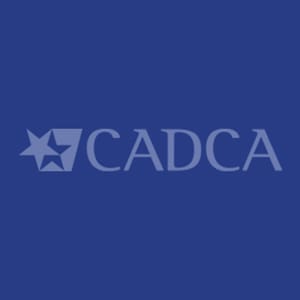The Drug-Free Communities (DFC) program has always enjoyed strong bipartisan, bicameral support on Capitol Hill. Current congressional champions for the DFC program include Senator Chuck Grassley (R-IA), Senator Jeanne Shaheen, (D-NH), Rep. Ann Kuster (D-NH-2nd) and Rep. Brian Fitzpatrick (R-PA-1rua). Past congressional champions for the DFC program have included then-Senator Joe Biden (D-DE), former Senator Patrick Leahy (D-VT), the late Senator Dianne Feinstein (D-CA), then Representative Rob Portman (R-OH-2nd), former Rep. Sander Levin (D-MI-9º) and former Rep. Bill Johnson (R-OH-6º). As many of CADCA’s original congressional champions have retired, it is essential that new members from both parties and both chambers of Congress are continually recruited. To help achieve this objective, CADCA’s Public Policy (PP) team has developed case studies, which showcase coalitions that have exceptional outcome data. Case study coalitions show reductions across all substances (alcohol, tobacco, marijuana and prescription drugs) and all grade levels (middle school and high school). CADCA’s PP team uses data received from the Office of National Drug Control Policy’s (ONDCP) Drug-Free Communities Management and Evaluation (DFC ME) system that ICF analyzes and distributes to grantees. The PP team interviews coalition leaders to see what strategies across all of CADCA’s 7 strategies for community change they implemented to achieve the substantial population level reductions in youth substance use. This content is added to the ONDCP data compiled and analyzed by ICF to create the case studies. These case studies are created with the goal of representing as many kinds of communities, populations and geographic regions of the country as possible.
CADCA’s PP team has used the case studies in meetings with members of Congress who represent case study coalitions. For example, two impactful meetings were Nexus Coalition’s meeting with staff from Rep. David Schweikert’s (R-AZ-1rua) office and Link Together Coalition’s meeting with Rep. Raja Krishnamoorthi’s (D-IL-8º) staff. Rep. Schweikert is a fiscal conservative and Rep. Krishnamoorthi emphasizes public health as one of his major priorities.
CADCA and Nexus Coalition’s members emphasized the effectiveness of the DFC program in comparison to the tiny investment of federal funds spent on the program. Some of Nexus Coalition’s most impressive outcomes include:
- An 87.5% rate of decline in middle school prescription drug misuse (from 16% in 2016 to 2% in 2017)
- A 56.2% rate of decline in high school alcohol use (from 32.2% in 2012 to 14.1% in 2020)
- A 72.2% rate of decline in high school prescription drug misuse (from 10.1% in 2012 to 2.8% in 2020)
Rep. Schweikert’s staff was impressed by these outcomes and by the fact that the DFC program is funded by “budget dust” – $125,000 per year per grantee for up to 10 years. They understood how the DFC program is a highly effective and efficient use of federal funds.
CADCA and the Link Together Coalition’s members emphasized the effectiveness of the DFC program in reducing youth substance use in their community. Between 2012 and 2020, the coalition achieved the following outcomes at the high school level:
- Alcohol use declined at a rate of 40.4% (from 36.8% in 2012 to 21.9% in 2020)
- Tobacco use declined at a rate of 90.7% (from 10.8% in 2012 to 1.0% in 2020)
- Marijuana use declined at a rate of 50.8% (from 22.8% in 2012 to 11.2% in 2020)
- Prescription drug misuse declined at a rate of 70.4% (from 4.4% in 2012 to 1.3% in 2020)
As a leader of the Congressional Caucus to End the Youth Vaping Epidemic in the House, Rep. Krishnamoorthi’s staff was impressed by these outcomes and understood how the Link Together Coalition drove these reductions in youth substance use by implementing multiple strategies across multiple sectors of the community.
Meetings like these are critical to engaging new and maintaining old champions for the DFC program and substance use prevention in Congress. As long-serving members of Congress prepare to retire, CADCA’s work in developing new champions for substance use prevention is more important than ever. Case study coalitions, such as Nexus Coalition and Link Together Coalition are essential to these efforts. CADCA is grateful to all DFC coalitions for the work they do to reduce youth substance use in their communities.
Full outcome graphs for Nexus Coalition and the Link Together Coalition are available below.
Nexus Coalition Middle School Students

Nexus Coalition High School Students

Link Together Coalition Middle School Students

Link Together Coalition High School Students



